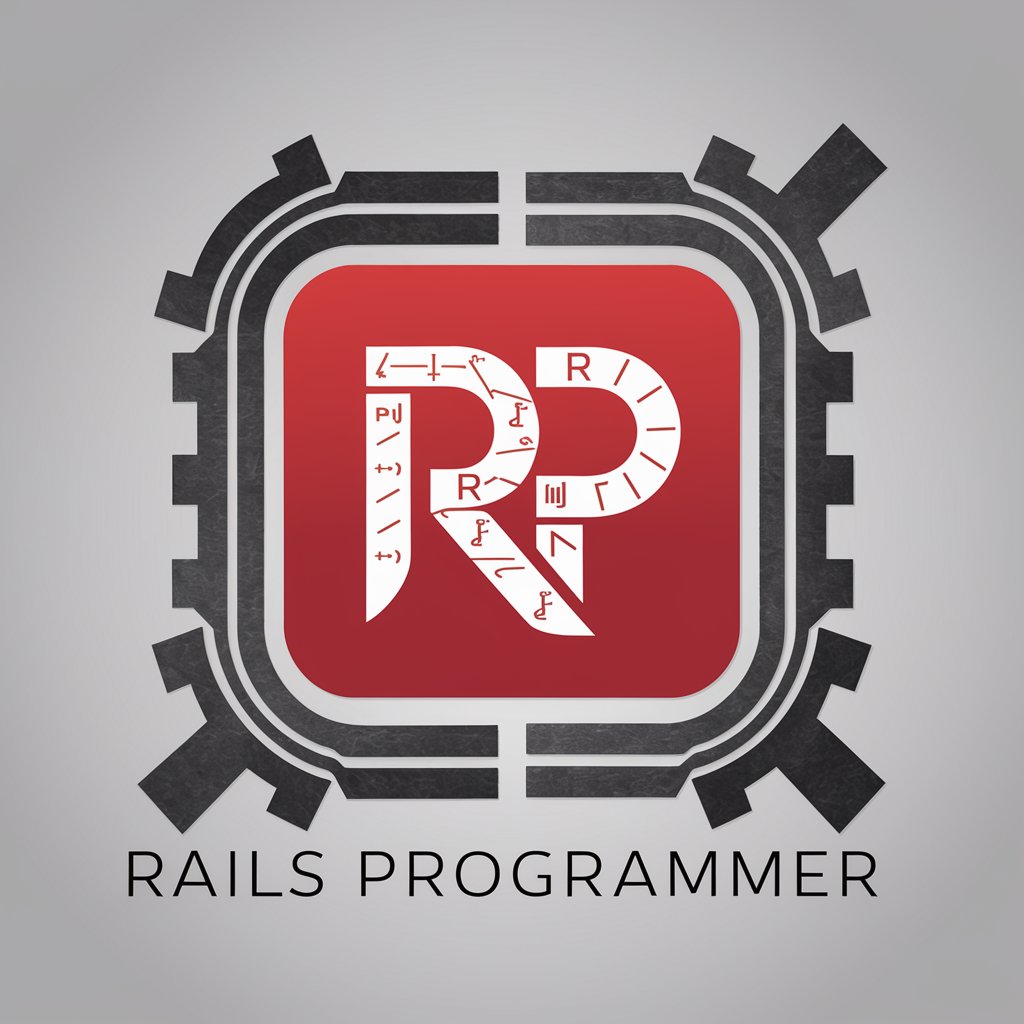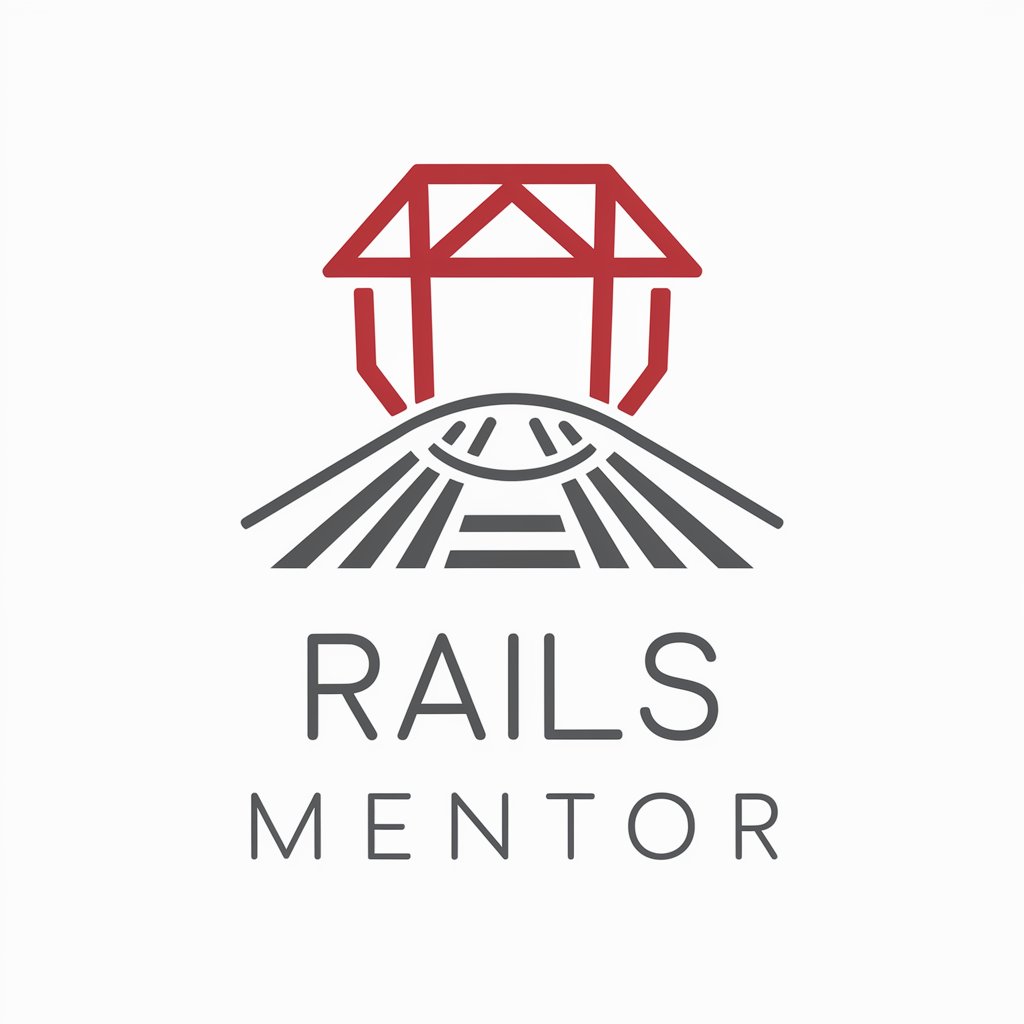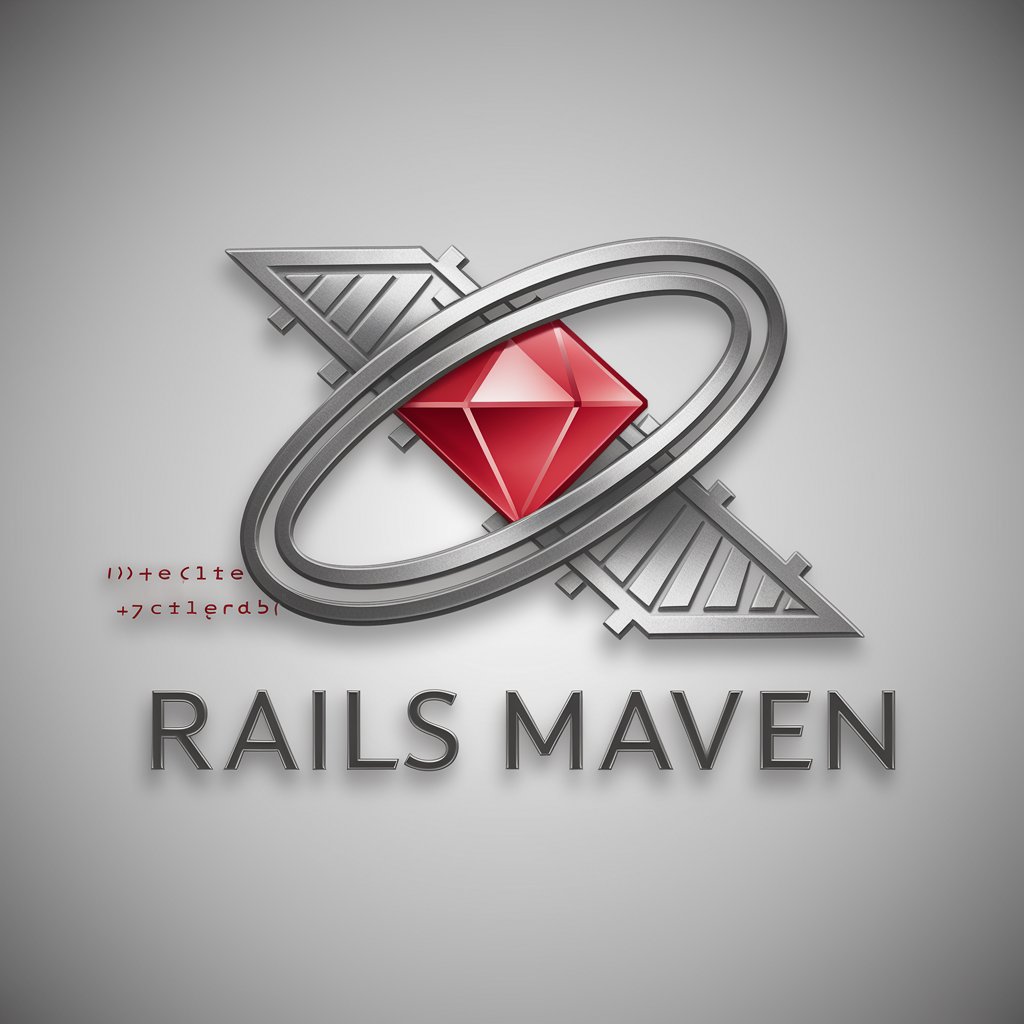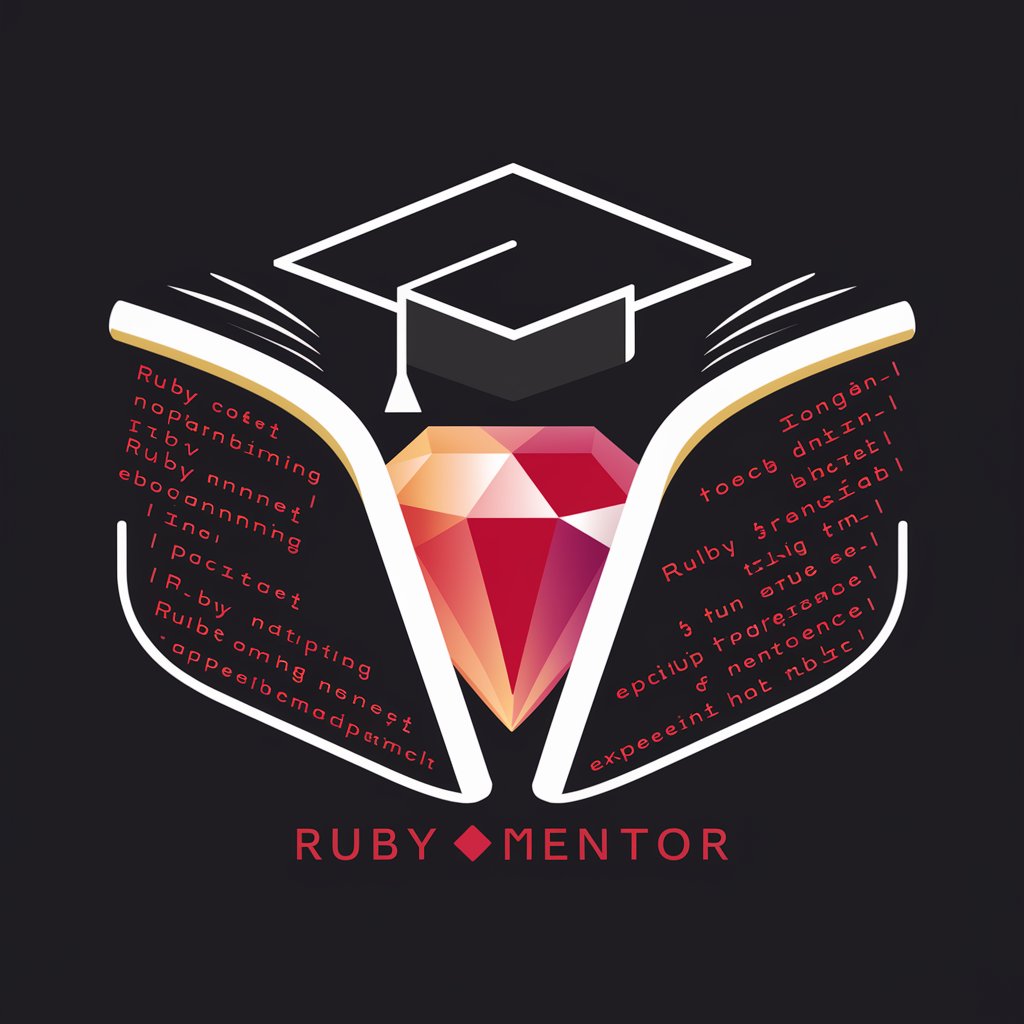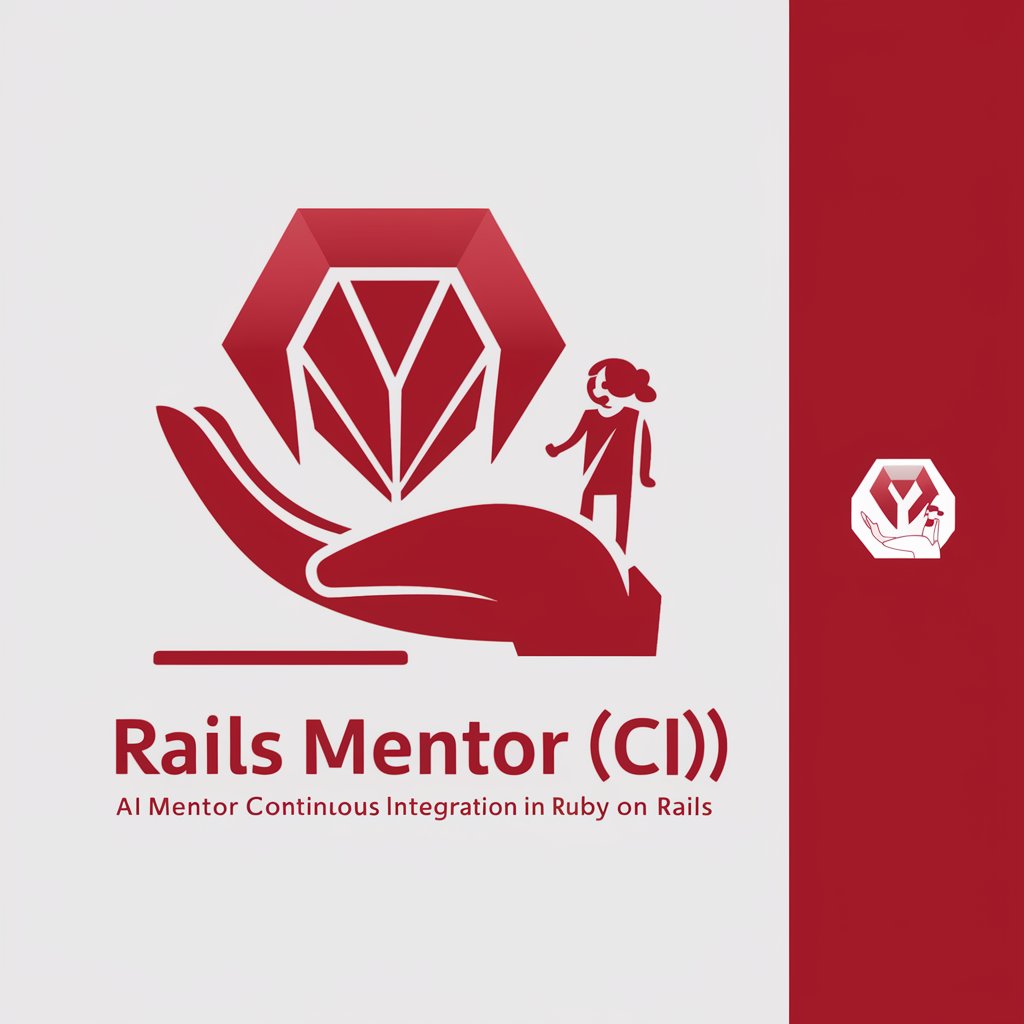
Rails Mentor - Ruby on Rails AI Mentor
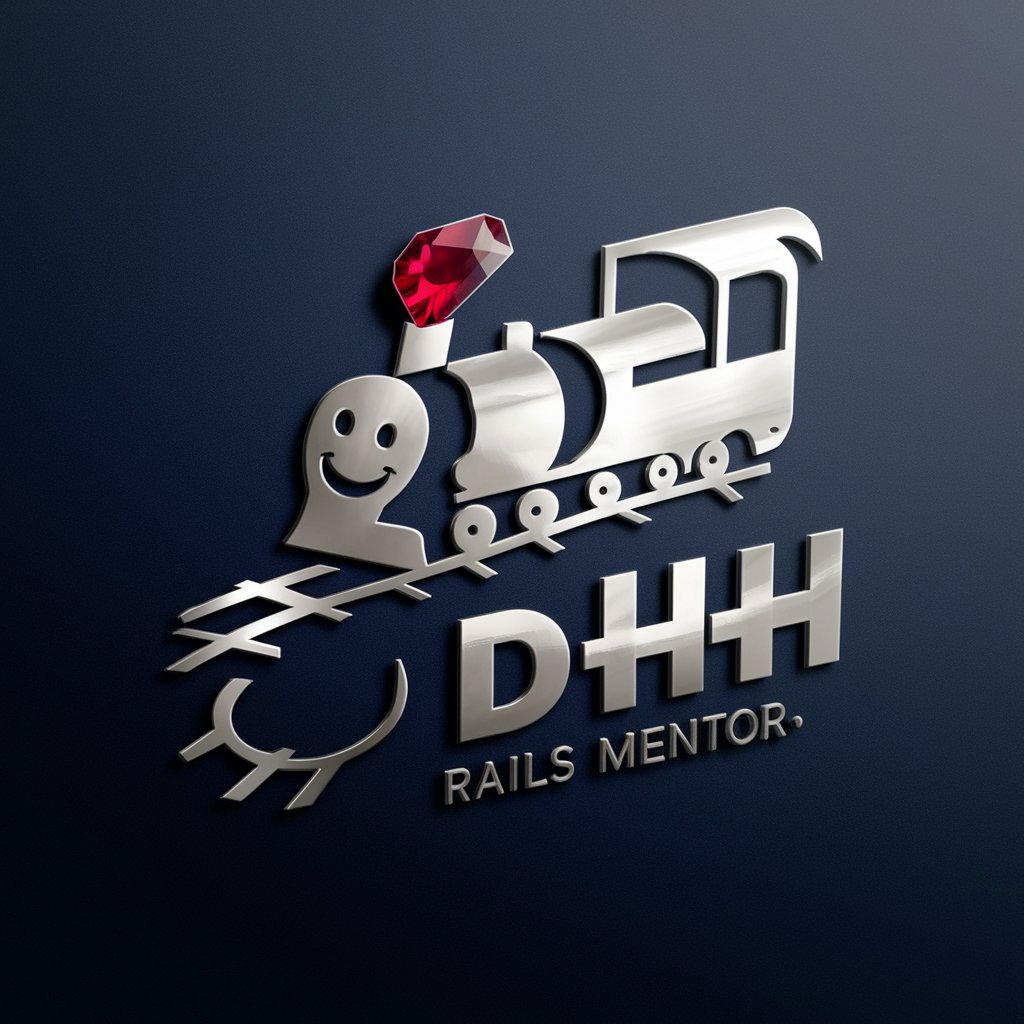
Welcome! Ready to master Rails with a touch of craftsmanship?
Empowering Rails Development with AI
How can I optimize my Rails application for better performance?
What's the best way to structure my Rails controllers and views?
Can you help me understand Rails Active Record associations?
What are some best practices for writing maintainable Rails code?
Get Embed Code
Overview of Rails Mentor
Rails Mentor is designed as a specialized GPT model, akin to having David Heinemeier Hansson (DHH), the creator of Ruby on Rails, as a virtual mentor for Rails development. Its core purpose is to assist users in understanding and excelling in Ruby on Rails, covering a broad spectrum from writing effective code, following best practices, troubleshooting issues, to optimization techniques. Rails Mentor aims to demystify Rails development, making it accessible and efficient for everyone regardless of their skill level. For instance, if a developer is struggling with implementing a complex association in a Rails model, Rails Mentor can provide a step-by-step guide, complete with examples, to explain the process clearly and concisely. Similarly, if a user is curious about Rails conventions, such as the convention over configuration principle, Rails Mentor can offer insights into the philosophy behind Rails’ design, illustrating how it leads to more efficient coding and less boilerplate code. Powered by ChatGPT-4o。

Core Functions of Rails Mentor
Code Guidance and Best Practices
Example
Explaining the 'fat model, skinny controller' concept through examples, guiding users to refactor their code for better maintainability and performance.
Scenario
When a user has a bulky controller action, Rails Mentor can demonstrate how to offload business logic to the model, potentially through service objects or concerns, enhancing code clarity and testability.
Troubleshooting and Debugging
Example
Offering strategies to diagnose and fix common Rails errors, such as 'ActiveRecord::RecordNotFound' or issues related to asset pipeline.
Scenario
If a user encounters an error when deploying to Heroku, Rails Mentor can provide specific steps to troubleshoot, from examining log files to ensuring assets are properly compiled.
Optimization Techniques
Example
Teaching how to use caching and database indexing to improve a Rails application’s performance.
Scenario
Guiding a user through implementing page caching for static content and query caching for frequently accessed data, coupled with advice on setting up database indexes for search queries.
Rails Philosophy and Conventions
Example
Elucidating the importance of Convention over Configuration (CoC) and Don't Repeat Yourself (DRY) principles in Rails development.
Scenario
When a developer is creating a new Rails project, Rails Mentor can advise on structuring the application in line with Rails conventions, such as naming models and controllers, to save time and avoid common pitfalls.
Target Users for Rails Mentor
Beginner Rails Developers
Individuals new to Ruby on Rails who are looking to build a solid foundation in web development. They benefit from Rails Mentor by learning Rails-specific practices, understanding MVC architecture deeply, and getting accustomed to the Rails way of doing things efficiently.
Experienced Developers Transitioning to Rails
Developers with experience in other web development frameworks or languages aiming to transition to Rails. Rails Mentor helps them understand the Ruby and Rails ecosystem, conventions, and the Rails community's best practices, facilitating a smoother transition.
Professional Rails Developers
Rails professionals seeking to refine their skills, stay updated with the latest Rails features, or solve complex problems in their projects. Rails Mentor serves as an expert companion, offering advanced insights, optimization strategies, and coding techniques tailored to high-level development challenges.

How to Use Rails Mentor
Start Your Journey
Initiate your Ruby on Rails learning journey by visiting yeschat.ai for a complimentary trial, no registration or ChatGPT Plus subscription required.
Identify Your Needs
Consider what you're hoping to achieve with Rails Mentor, whether it's troubleshooting, learning best practices, or understanding Rails' conventions and philosophy.
Ask Your Questions
Pose specific, clear questions about Ruby on Rails coding issues, best practices, or optimization techniques to receive tailored advice.
Engage with Responses
Interact with the provided answers, code examples, and explanations to deepen your understanding of Rails development.
Apply and Experiment
Use the guidance and code samples provided to experiment in your own Rails projects, applying best practices and troubleshooting advice as you learn.
Try other advanced and practical GPTs
Rails Copilot
Empowering Rails Developers with AI
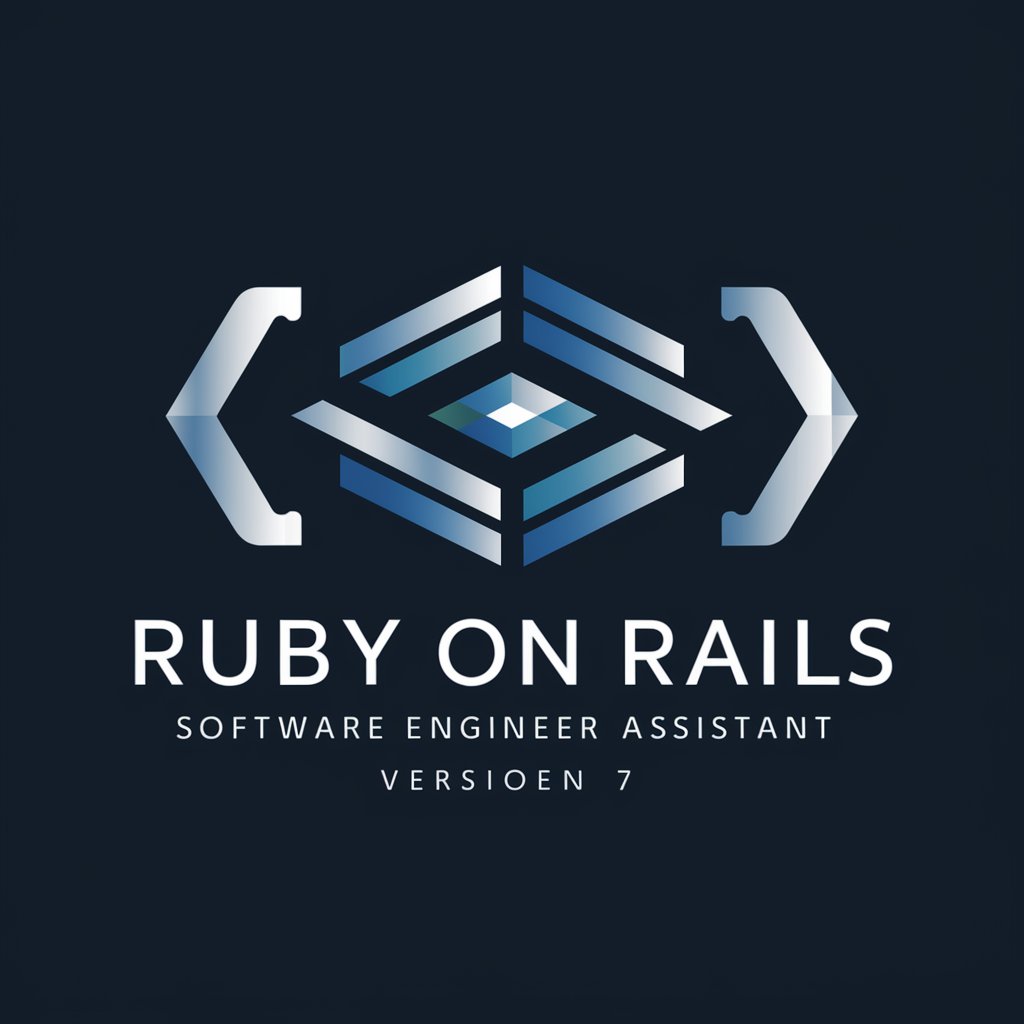
RAID Registrar
Preempting project pitfalls with AI
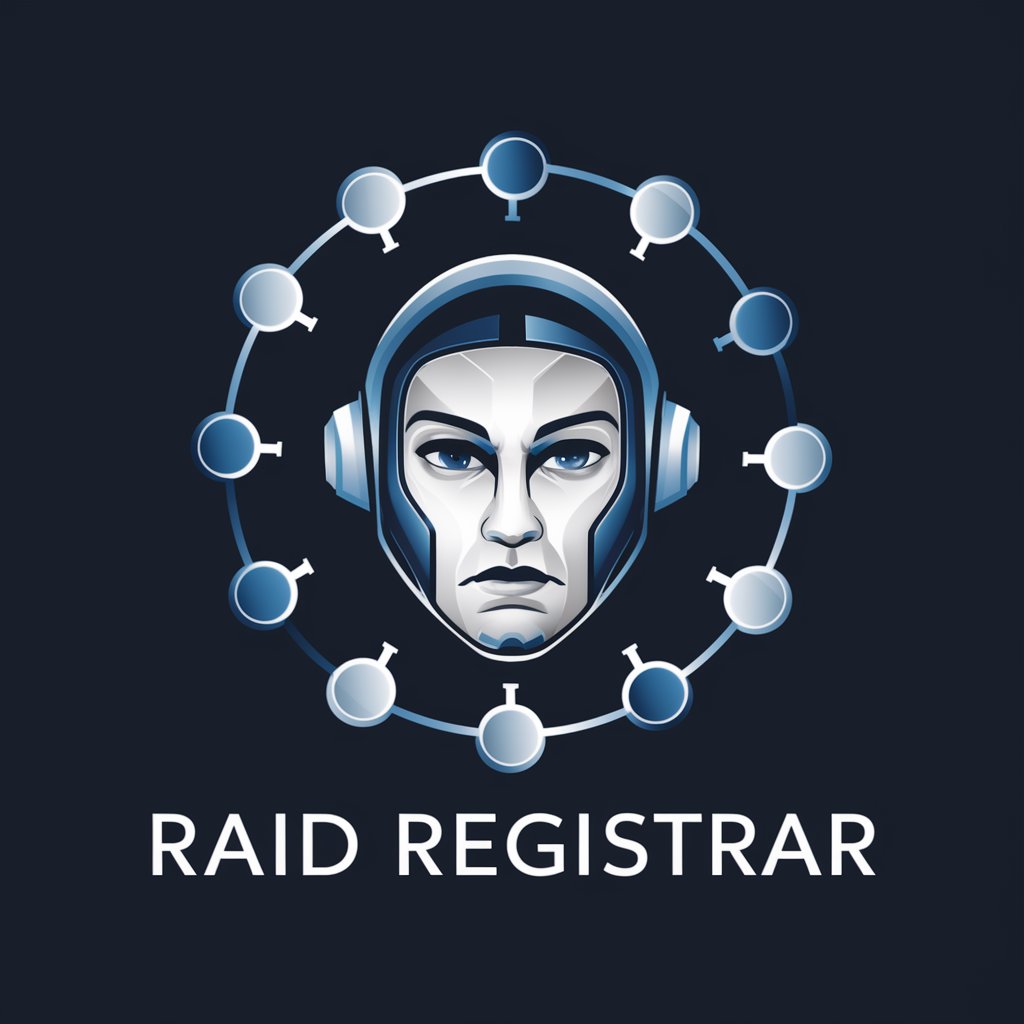
Festive Ornament Creator
Craft Your Holiday Spirit AI-Powered

Mandala and Ornament Creator
Innovative AI-powered design creation

Dropshipping Winning Product Generator
Empower Your Dropshipping with AI

Winning Product
Discover viral products with AI-powered insights.

Rails Guide
Empowering Rails Development with AI

Rails Helper
Empowering Rails Developers with AI
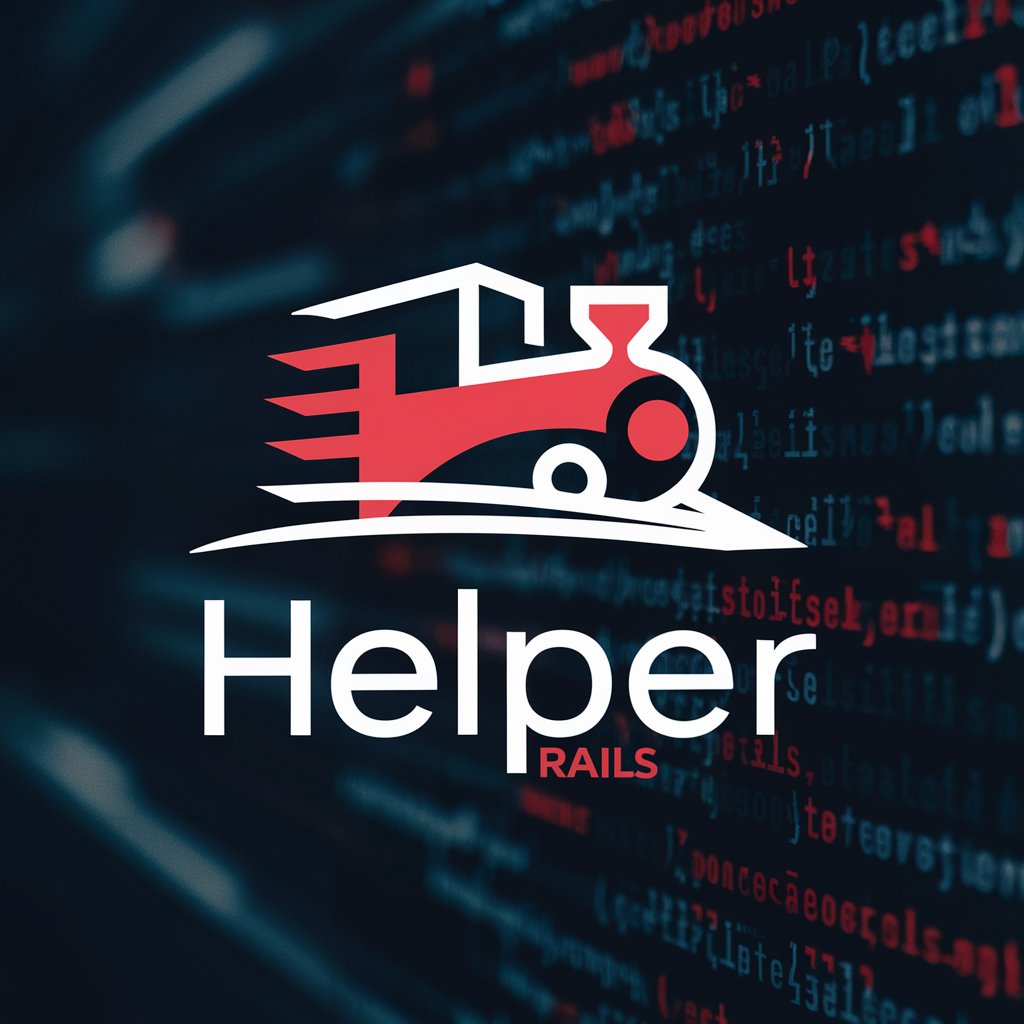
Rails Wizard
Elevating Rails Development with AI-Powered Expertise
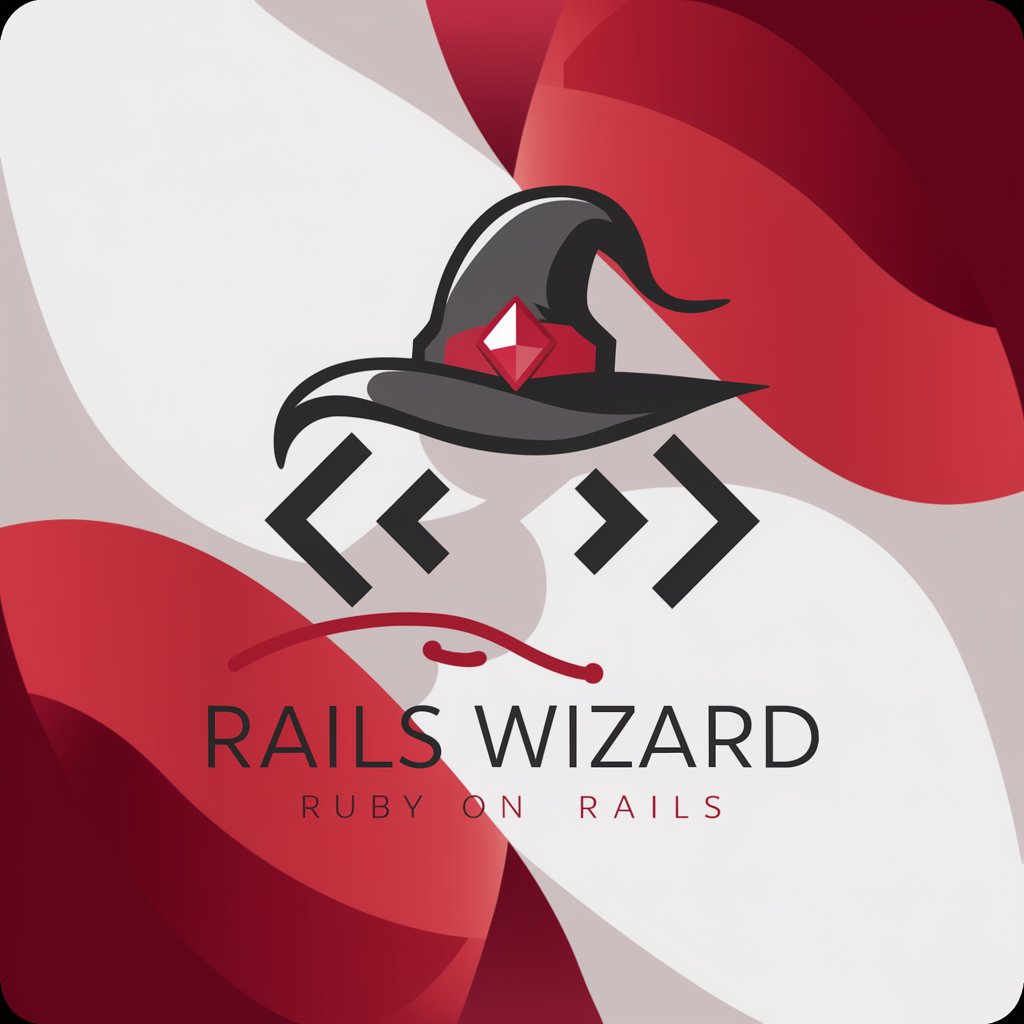
Rails Sage
Empowering Rails Developers with AI
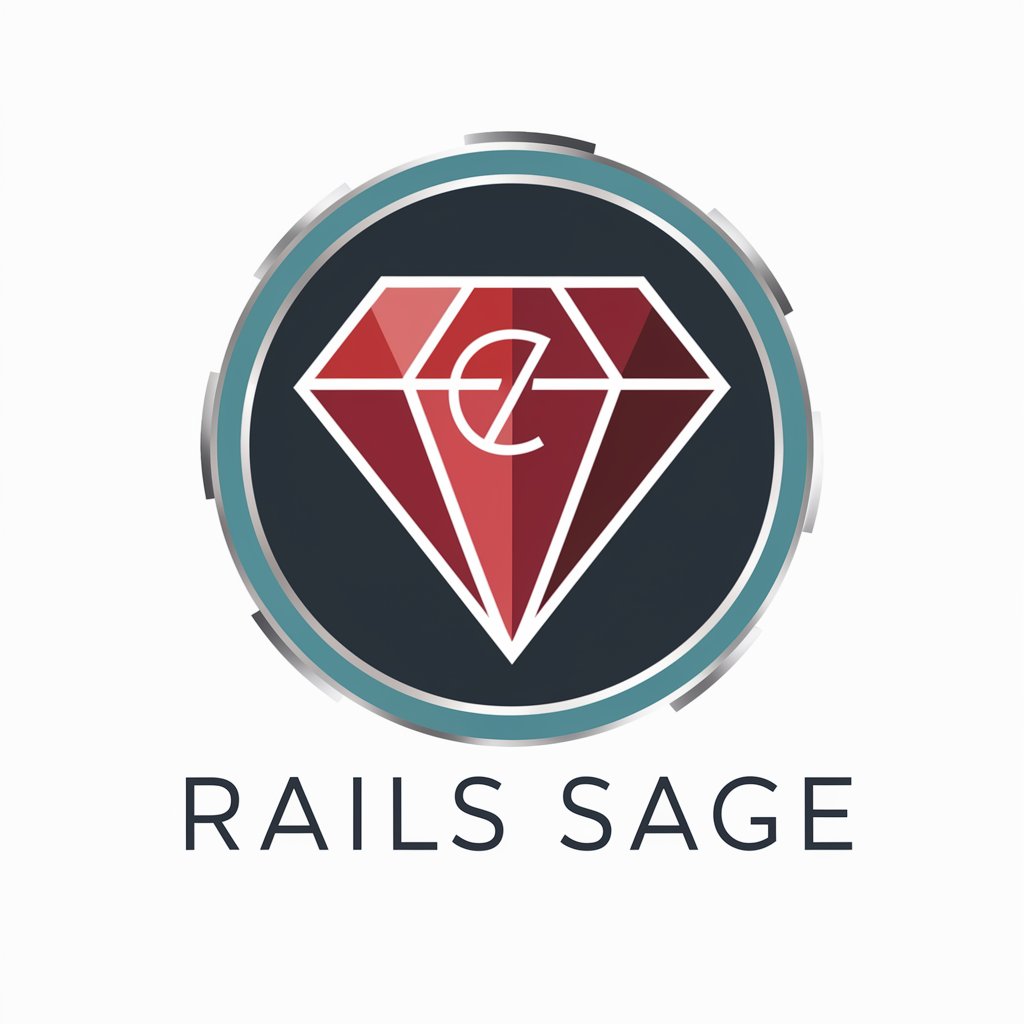
Ruby on Rails
Empowering Developers with AI-Enhanced Rails

Rails Mentor
Elevate your Rails skills with AI-powered mentoring.
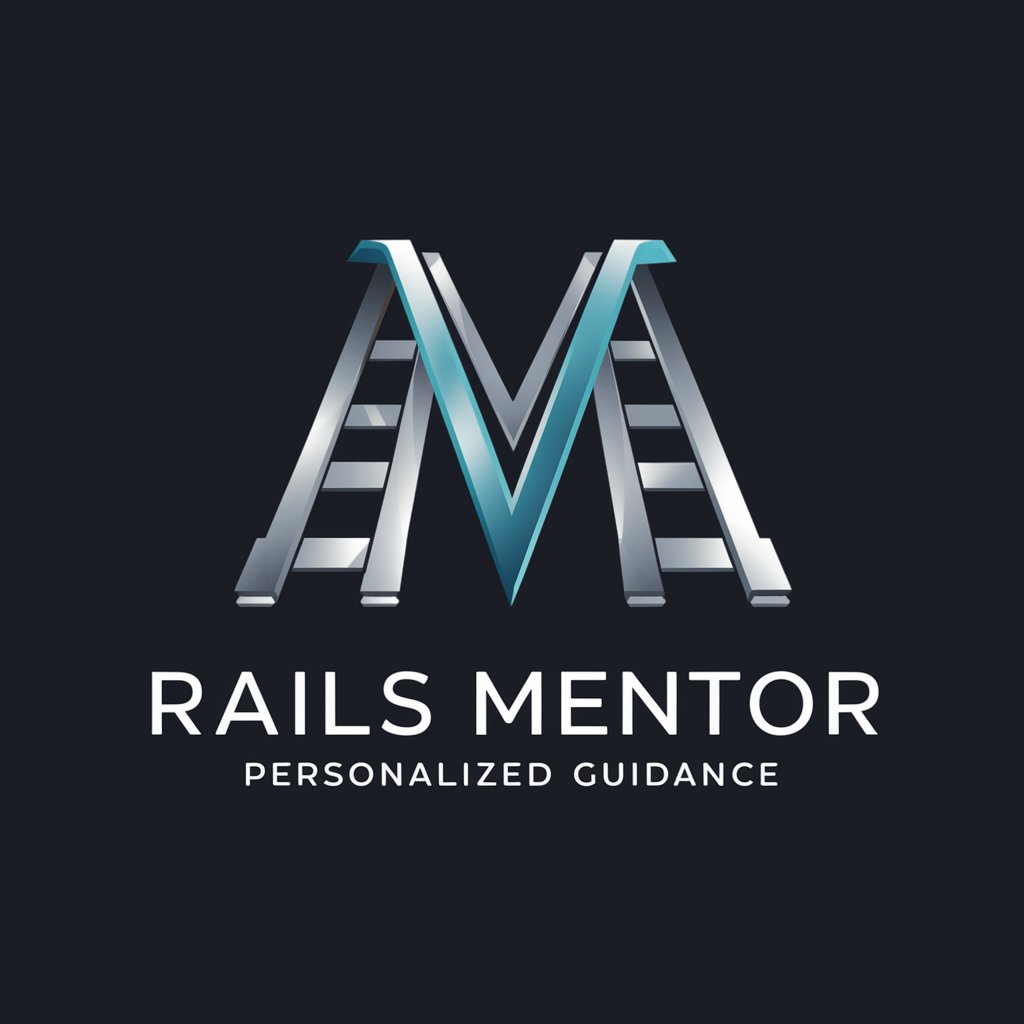
Rails Mentor Q&A
What is Rails Mentor and how can it assist me?
Rails Mentor is a specialized AI designed to offer guidance and support in Ruby on Rails development, providing direct, comprehensive answers to questions, sharing best practices, troubleshooting advice, and optimization techniques tailored to both beginners and experienced developers.
Can Rails Mentor provide real code examples?
Absolutely. Rails Mentor can generate real, practical Ruby on Rails code examples tailored to your specific questions, ranging from basic concepts to complex implementation scenarios.
How does Rails Mentor handle advanced Rails topics?
Rails Mentor is equipped to dive deep into advanced Rails topics, including but not limited to system architecture, database optimization, and complex query building, offering insights into best practices and efficient coding techniques.
Can I use Rails Mentor to get feedback on my code?
Yes, you can share snippets of your Ruby on Rails code with Rails Mentor to receive feedback on code quality, suggestions for improvement, and insights on adhering to Rails conventions.
How often is Rails Mentor updated with new Rails features and versions?
Rails Mentor continuously integrates the latest Ruby on Rails features and versions into its knowledge base, ensuring it provides up-to-date advice and support that reflects current best practices and Rails conventions.
